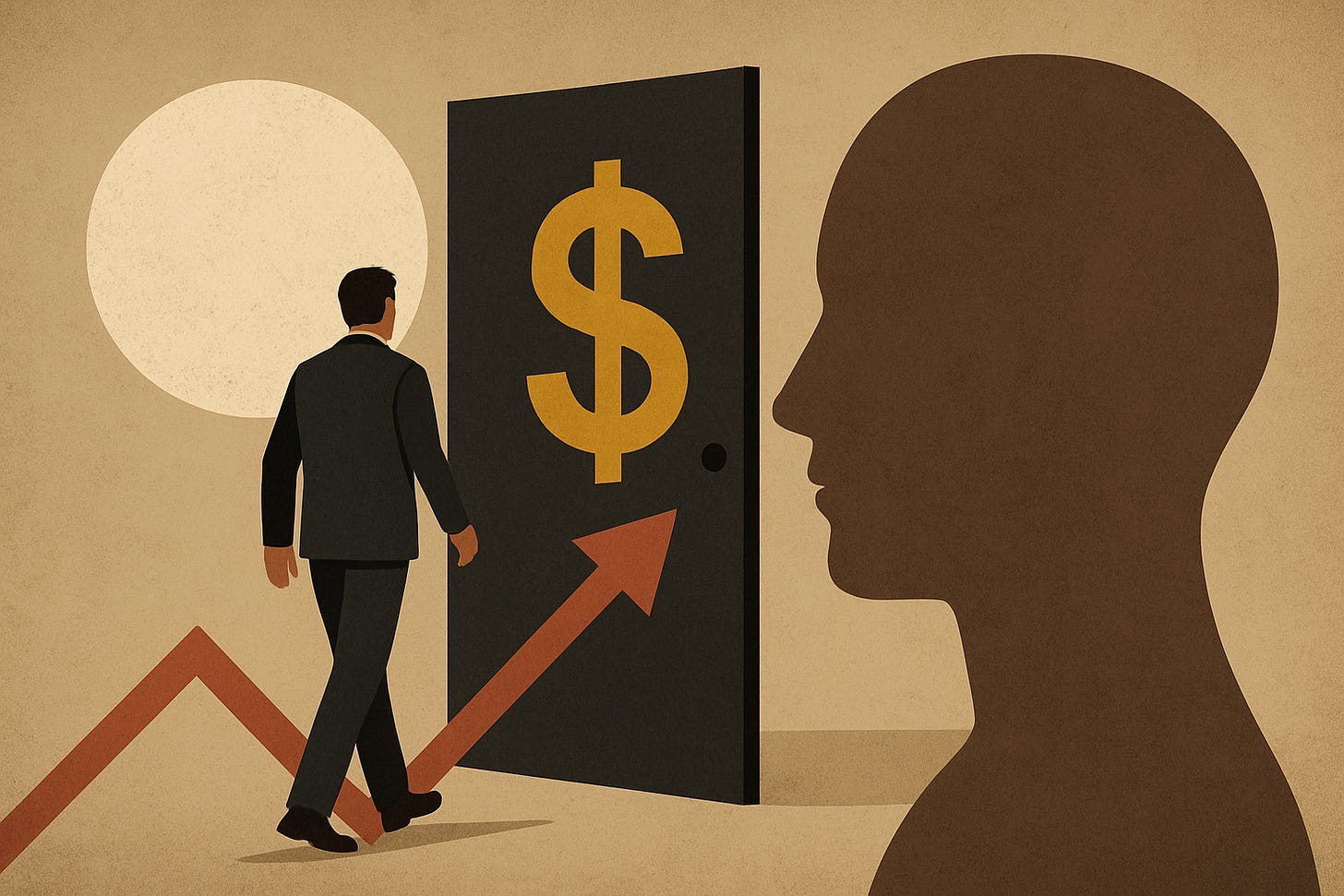The Secondary Veil
An in-depth exploration of how early liquidity through secondary sales rewires founder psychology, reshapes ambition, and quietly serves investor interests in modern venture capital.
The idea of the “secondary” has always carried a quiet tension in venture capital. It is not the headline transaction that makes TechCrunch, nor the one written into pitch decks or end-of-year investor letters. Instead, it is the side door through which early stakeholders slip out with cash before the company itself has generated a single cent of durable profit. Founders and early employees take some chips off the table, investors facilitate the trade, and suddenly what was once an all-or-nothing bet becomes, at least partially, a guaranteed win.
Secondary sales are neither rare nor new.
They have long existed as a tool to attract and retain talent, and to signal confidence in later-stage financing rounds. But in the last decade they have accelerated into an institution of their own. Multi-million-dollar founder secondaries at Series B or even earlier rounds are now seen not as exceptions but as signals of a healthy fundraising market. And yet the very act of letting a founder cash out early alters the invisible contract that governs ambition, focus, and alignment inside a startup.
Once money is in the bank, the psychology of building shifts. For some, it reduces the gnawing financial insecurity that comes with years of low salaries and deferred rewards. For others, it subtly dulls the urgency to chase the improbable 100x outcome.
The company no longer feels like a single lifeboat—it becomes one of several options in a portfolio of personal security.
Investors, despite their public insistence on founder hunger and long-term vision, often prefer this outcome too.
A founder who has taken liquidity may be calmer, less erratic, and easier to “manage” through the cycles of growth and contraction.
The result is a paradox. Early liquidity is rational, even humane, in its intent. But it also rewires motivation, changes how founders think about risk, and in turn reshapes the trajectory of the product and the company.
Here is the dynamics of that shift, and why secondary sales—quiet, often under-discussed—are one of the most consequential forces shaping the culture and outcomes of modern startups.
In this issue of The Founder's Brew, we unpack the psychology and consequences of secondary sales in venture-backed startups. We look at how early liquidity reshapes founder motivation, realigns incentives with investors, and influences the long-term ambition and product quality of companies. Drawing from industry data and observed practices, we examine why investors quietly encourage secondaries, and why founders must confront the trade-offs embedded in taking money off the table too soon.
More posts from this series:
🚀 Today’s Issue at a Glance
The Rise of Founder Secondaries
How Liquidity Rewires Motivation
Investor Preferences and Silent Endorsements
Cultural and Organisational Consequences
The Long-Term Question
Welcome to The Founder’s Brew, 🔒subscribers-only🔒 offering by The Percolator dedicated to entrepreneurs & start-up enthusiast. Each week we share tools, resources and insights to help you grow in your founder journey.
🚀
Now, you can Upgrade your Subscription for Free when you Invite your Friends to Subscribe to The Percolator
The modern venture ecosystem is built on a paradox: founders are expected to take extraordinary risks, but they are also expected to stay rational long-term stewards of capital.
Secondary sales sit squarely in the middle of this paradox.
They offer personal financial relief and a measure of reward long before the company has achieved liquidity through acquisition or IPO. For a founder, a secondary transaction can be life-changing—erasing debt, securing a home, or simply providing stability after years of volatility.
At the industry level, secondaries have grown from rare exceptions into routine features of growth financing. In the 2000s, it was unusual for a founder to sell shares before a company had achieved scale or profitability. Today, data from Carta and PitchBook suggests that founder secondaries appear as early as Series B in more than one-third of venture deals, often running into tens of millions of dollars.
» This shift is not accidental.
Investors have come to prefer secondaries as a mechanism to reduce founder anxiety and align incentives during long holding periods. If the average time to exit is now ten years, expecting founders to remain financially constrained for the entire period is unrealistic. Providing early liquidity ensures that founders are not distracted by personal financial stress and are less tempted by early acquisition offers. In theory, this creates a win-win outcome: the founder feels secure enough to continue building, while the investor maintains their chance at a larger eventual exit.
But beneath this logic lies a more complex reality.
» Liquidity changes psychology.
A founder with $10 million in the bank views risk differently than one with nothing. Ambition, urgency, and even product discipline shift in subtle but measurable ways. For employees, the knowledge that leadership has cashed out while they remain locked in can create disillusionment. For customers and the market, a change in strategic aggression may be visible in product roadmaps and competitive behaviour.
The secondary, in other words, is not just a financial event. It is a cultural and motivational one.
Secondary changes the invisible contract between founder, investor, and company. And in doing so, it raises difficult questions: How much is too much too early? When does rational personal security become misaligned with collective ambition? And why, despite the risks, do investors increasingly encourage it?
Keep reading with a 7-day free trial
Subscribe to The Percolator to keep reading this post and get 7 days of free access to the full post archives.





